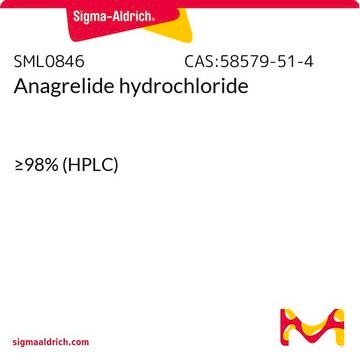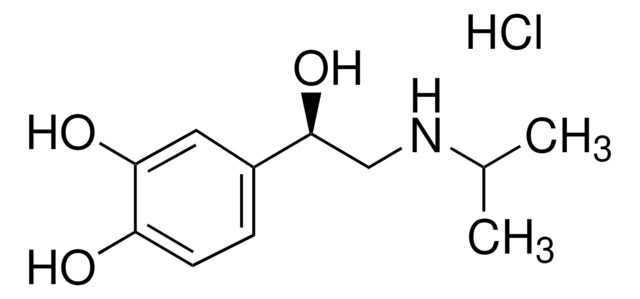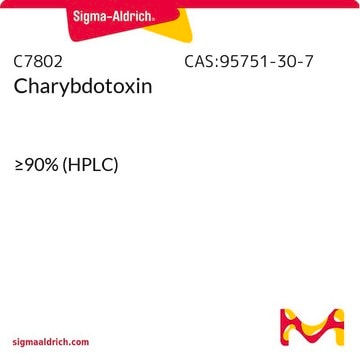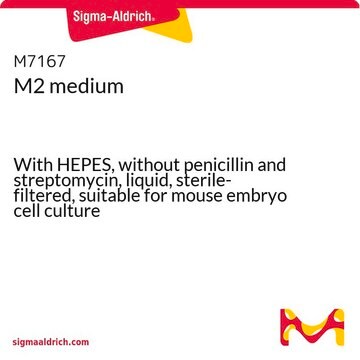M4659
Milrinone
≥97% (TLC), powder, phosphodiesterase type III inhibitor
Synonym(s):
1,6-Dihydro-2-methyl-6-oxo-(3,4′-bipyridine)-5-carbonitrile
About This Item
Recommended Products
product name
Milrinone, ≥97% (TLC), powder
Quality Level
Assay
≥97% (TLC)
form
powder
color
off-white
solubility
DMSO: >10 mg/mL
H2O: insoluble
originator
Sanofi Aventis
storage temp.
2-8°C
SMILES string
CC1=C(C=C(C#N)C(=O)N1)c2ccncc2
InChI
1S/C12H9N3O/c1-8-11(9-2-4-14-5-3-9)6-10(7-13)12(16)15-8/h2-6H,1H3,(H,15,16)
InChI key
PZRHRDRVRGEVNW-UHFFFAOYSA-N
Gene Information
human ... PDE3A(5139) , PDE3B(5140) , PDE4B(5142) , PDE5A(8654) , PTPRA(5786)
rat ... Pde3a(50678)
Looking for similar products? Visit Product Comparison Guide
Biochem/physiol Actions
Features and Benefits
Signal Word
Danger
Hazard Statements
Precautionary Statements
Hazard Classifications
Acute Tox. 3 Oral
Storage Class Code
6.1C - Combustible acute toxic Cat.3 / toxic compounds or compounds which causing chronic effects
WGK
WGK 3
Flash Point(F)
Not applicable
Flash Point(C)
Not applicable
Personal Protective Equipment
Certificates of Analysis (COA)
Search for Certificates of Analysis (COA) by entering the products Lot/Batch Number. Lot and Batch Numbers can be found on a product’s label following the words ‘Lot’ or ‘Batch’.
Already Own This Product?
Find documentation for the products that you have recently purchased in the Document Library.
Customers Also Viewed
Articles
Cyclic nucleotides like cAMP modulate cell function via PKA activation and ion channels.
Cyclic nucleotides like cAMP modulate cell function via PKA activation and ion channels.
Cyclic nucleotides like cAMP modulate cell function via PKA activation and ion channels.
Cyclic nucleotides like cAMP modulate cell function via PKA activation and ion channels.
Our team of scientists has experience in all areas of research including Life Science, Material Science, Chemical Synthesis, Chromatography, Analytical and many others.
Contact Technical Service
















